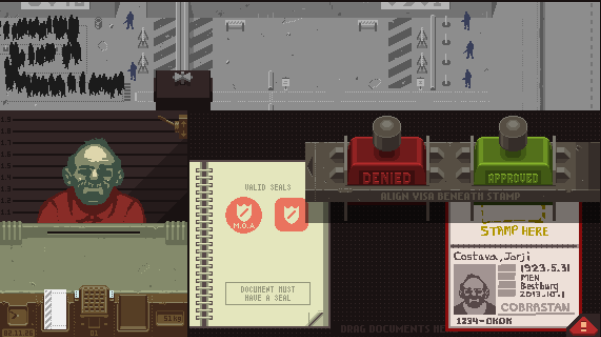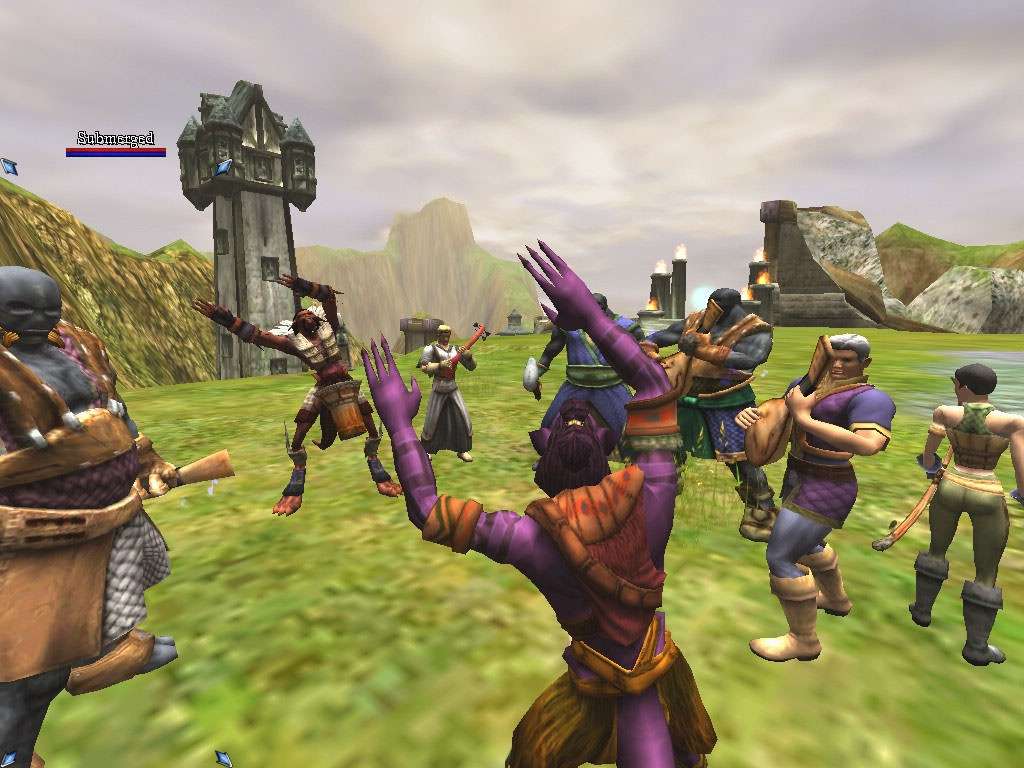Highlights of Reason's Video Game Coverage Over the Years
Virtual worlds have caused plenty of real-world anxiety, hysteria, and good, old-fashioned fun.

Even back when video games still meant a pocket full of quarters and a huge console in the local pizza parlor, Reason writers found the new technology, the entertainment it offered, and the possibilities it presented to be intriguing. Since we began covering the topic, the virtual world of video gaming has involved real-world issues, including new means to communicate and build communities. It has also come under attack from critics, moral crusaders, and legislators, who brought with them regulatory efforts and assaults on private behavior and free expression.
The potential and the controversy show no signs of diminishing any time soon. Here's a short tour of highlights from our past coverage of video games.
"38 Studios: Curt Schilling's Crony Capitalism Debacle," Reason TV, January 3, 2013.
This video exposes the waste of taxpayer money forked over by Rhode Island officials in a desperate—and plainly idiotic—attempt to lure a video game company to the Ocean State because it was fronted by a legendary baseball player and local hero.

"Papers, Please: Politics in Games, and the Growth of Indie Development," Reason.com, September 26, 2013.
A video game about properly checking immigration paperwork sounds like the worst possible idea, like a propaganda effort from an oppressive communist nation. But when independent game developer Lucas Pope created Papers, Please he embraced the concept, putting the players in a fictional, oppressive Eastern European country in the 1980s and putting them to work stamping passports. The game turned out to be a critical darling and more successful than Pope expected. Reason's Scott Shackford interviewed Pope about the growth of the indie game industry and about incorporating political concepts into video games.

"Virtually Free: An Online World Embraces Regulation," Reason magazine, February 2008.
Six years ago, subscribers to the virtual world of Second Life awoke to a surprise: The garish, skyscraper-sized billboards they had learned to tolerate as part of their three-dimensional landscape were about to be vaporized, the site's creators announced. Linden Lab, the company that developed and owns Second Life, announced on its blog a new rule prohibiting advertising on Second Life's mainland continents if it impairs a neighbor's view.
This was only the latest step in a series of moves away from the virtual world's laissez-faire origins.
The Lindens might not have ended Second Life's libertarian era as much as created a gated community in a far larger metaverse that remains fundamentally free, wrote Wagner James Au, the author of a book about the one-time Internet phenomenon. Then again, gated communities may be libertarian on paper, but considering all the conformist regulations required to get and stay in one, few would say they are libertarian in spirit.
"Second Life: A Virtual Frontier," Reason TV, September 10, 2008.
TV legend, avid gamer, and Reason TV creator Drew Carey takes you on a guided tour of Second Life, arguably the most-realized online world yet developed. Be warned: This is not your parents' Leisure Suit Larry but a world in which anything can happen (and pretty much does).

"Free Play: The Politics of Quest Games," Reason magazine, April 2004.
In 1979 kids and their quarters descended on convenience stores and shopping malls to experience the latest in digital entertainment: breaking rocks. The video game Asteroids boasted that its "explosions, laser blasts, [and] fragmentation of space debris" were "realistic," and by the standards of the day they were.
A quarter century later, as you'd expect, game pyrotechnics became much more advanced. But something else occurred that was harder to predict, writes Kevin Parker. Arcade action was being being upstaged by social simulation. Many Internet-based games started to facilitate market economies, political factions, and even elections. Player groups emerged as popular tools for protection, cooperative adventuring, and simple bloodsport.
"How Washington Learned to Love Video Games," Reason TV, July 18, 2012.
Well, that didn't take too long, did it? Two years ago, Washington, D.C.'s Smithsonian hosted its first exhibit of video games. Just like film, rock music, and comic books before them, video games are now longer merely tolerated, but embraced by Washington, from the formation of a new congressional caucus to the placement of campaign ads on XBox games to the entombing of a Commodore 64 behind plexiglass at Smithsonian's Museum of American Art. Reason TV's Nick Gillespie and Meredith Bragg explain what had to happen first.

"Gambler's Web: Why Online Betting Can't Be Stopped—and Why Washington Shouldn't Bother Trying," Reason magazine, October 1999.
We sometimes forget just how long controversy has surrounded a particular type of video game—the type that involves gambling. As Reason put it in October 1999: "When Angel—mother, wife, and self-described 'patriotic Italian-American'—feels like unwinding, she heads to the bingo parlor. But Angel (not her real name) avoids the local church's game: She doesn't like the smoke, and besides, 'The crowd can get pretty vicious at Immaculate Mary's when the callers are inadequate.'
"For Angel, the nearest bingo parlor waits on just the other side of an Internet connection."
Even then, we saw that online betting can't be stopped, and that Washington shouldn't bother trying. (They didn't take the hint.)
"'Father of Video Games' Nolan Bushnell on Learning Through Gaming," Reason TV, June 17, 2013.
"People who play video games have much better computational skills, much better logic skills, much better search and cognitive skills than kids who don't," says Nolan Bushnell, author of Finding the Next Steve Jobs, founder of Brainrush, and the entrepreneur often described as the "father of video games." Reason TV's Tracy Oppenheimer caught up with Bushnell at the 2013 Milken Institute Global Conference in Beverly Hills, CA to discuss how video games can revolutionize education as well as Bushnell's role in exploring this new frontier.
Closing the Net: Will overzealous investigations of computer crime render freedom of the press technologically obsolete?, Reason magazine, January 1991.
Way back in pre-Web days, Reason covered the authorities' growing discomfort with electronic communications, and government officials' free speech-threatening attacks on people, organizations and business that exchanged information as data instead of on paper.
Among the concerns covered by Greg Costikyan in the January 1991 issue of Reason was the bizarre March 1990 Secret Service raid on Steve Jackson Games that almost destroyed the company (it survived and still exists today). The now infamous incident helped inspire the creation of the Electronic Frontier Foundation (EFF).
"We cannot know what the Net will bring," wrote Costikyan, "just as a farmer seeing a car for the first time couldn't possibly have predicted six-lane highways, urban sprawl, the sexual revolution, and photochemical smog. Nonetheless, we can see that something remarkable is happening, something that will change the world, something that has the potential to transform our lives. To ensure that our lives are enriched and not diminished, we must ensure that the Net is free."


Show Comments (3)